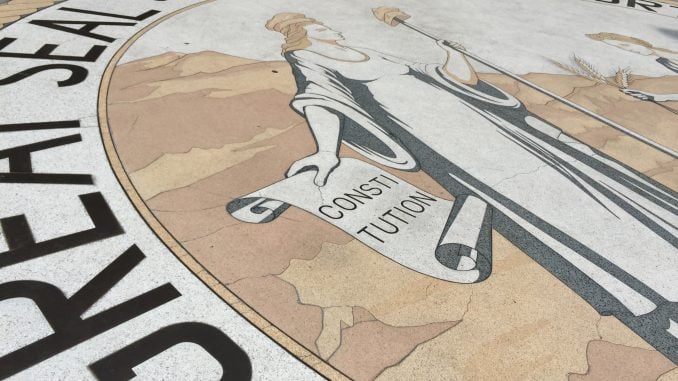
Recently I was asked: Why should one emphasize North Carolina’s cultural and political history? Here are some answers.
The study of North Carolina can help North Carolinians understand who they are. Many people are interested in genealogy. To be sure, it’s interesting to learn that one’s great-great-great-great-great grandfather was revered (or maybe notorious). But, people are interested in genealogy to learn more about their roots and possibly about past influences regarding their present circumstances. In essence, they want to have a more thorough understanding of who they are.
Studying about one’s home state — news, politics, culture or history — can help the North Carolinian, whether newcomer or native, learn more about whom he or she is. Also, generally speaking, such study can foster a better understanding of North Carolina’s current political and cultural environments.
That said, there are more and more people moving to North Carolina, to name two reasons, for the growing economy and our beautiful natural resources. To be sure, the Old North State is an attractive place on many levels. But a familiarity with the state’s history and culture is needed to ensure that its identity and historical lessons — good and bad — are not forgotten.
A study of North Carolina is also entertaining. Why not study, as North Carolina was referenced in 1900, “the vale of humility between two mountains of conceit”? (The evolution of that phrase’s usage provides a fascinating history.) One can learn about the Halifax Resolves and the Wright Brothers. One can learn about the great divide regarding barbecue, or the numerous fascinating characters that comprise North Carolina’s past and culture. I am currently reading, for instance, a book about Col. David Fanning, a Tory who conducted raids in the Piedmont during the Revolutionary War. It seems one man’s hero can be another man’s villain.
On a different level, the study of North Carolina history, culture and politics fills a void. Many are concerned with what their neighbors are doing in their communities. Many are interested in the national news and the happenings in Washington, D.C., and in other states. And they should be! For some, one or two economic or social issues motivate a passionate yet limited focus on North Carolina and its current policy without any, or little, attention to a broader North Carolina. The comprehensive study of North Carolina, as a distinct state, is equally important, and can help provide solutions to problems.
Let me take this a step further. Within the context of the United States, more and more decisions that affect our daily lives, over the years, seem to be made at the national level. In American polity, however, there is something between the individual and national matters: the individual’s respective state. Of course, as the political philosopher Edmund Burke would remind us, there are other institutional intermediaries, such as civic and religious ones. (There should also be local intermediaries between an individual and a state government.)
So then, the study of North Carolina reminds one that the Old North State is a particular place, with distinctive cultures comprising a distinct history. By studying North Carolina more comprehensively, one then may learn how an imperfect intermediary can offer lessons to defend liberty.
Finally, one learns that the state motto is Esse Quam Videri, or “to be rather than to seem.” The phrase comes from Cicero’s essay regarding friendship. Inevitably, serious discussions regarding politics and culture will include disagreements. I hope that all North Carolinians can agree that it’s best to avoid misrepresentation — whether pretentiousness or flattery — and invoke honesty.



